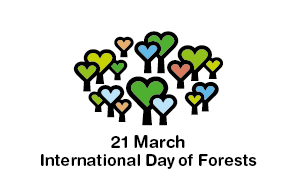Greetings on the International Day of Forests
Forests cover more than half of the territory of Latvia, and their importance and value are recognised by almost everyone in Latvia. On 21 March people all around the world celebrate the International Day of Forests, which this year calls to assess the role of forests in ensuring the planet's freshwater supply.
Life processes on Earth cannot be imagined without the presence of clean water. Oxygen is active only in moving water, and this movement is promoted by drainage systems in the forest. It allows plants to use the natural trace elements and absorb nutrients. Therefore maintenance and recovery of drainage systems are consistently ensured in the territories managed by JSC "Latvia's State Forests" (LVM).
When a drainage system can no longer ensure the flow of water, there start processes that limit the activity of oxygen in the water, and sediments are formed. In order to prevent sediments from reaching the waterbodies - lakes, rivers, etc. - after the renovation of the drainage systems, sedimentation ponds are created. Thanks to them, clean water continues to flow to waterbodies, while mud and silts are accumulated in the sedimentation ponds.
Stabilisation of ditch slopes also helps preventing silts from coming into the water. Historically, ditch slopes were made with hands, and therefore they are sinuous. Today, when ditches are restored, their sinuosity is preserved. Consequently, streams of different speeds are formed in the ditches, which makes oxygen in the water even more active, and allows to attract more and more new oxygen reserves.
In places where there are underground springs - spring fens - no forestry activities are carried out in order to protect places where the sources of clean water emerge.
In the forests managed by LVM, 4.1 mln tonnes of carbon, or 15 mln tonnes of CO2 are attracted annually, and the total accumulation in living biomass or in all LVM ‑ managed forests accounts for 109 mln tonnes of carbon, or 400 mln tonnes of CO2.




